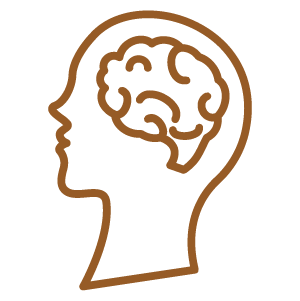Akhondzadeh, S., Naghavi, H. R., Vazirian, M., Shayeganpour, A., Rashidi, H., & Khani, M. (2001). Passionflower in the treatment of generalized anxiety: A pilot double-blind randomized controlled trial with oxazepam. Journal of Clinical Pharmacy and Therapeutics, 26(5), 363-367. https://doi.org/10.1046/j.1365-2710.2001.00367.x
Akhondzadeh, S., Kashani, L., Mobaseri, M., Hosseini, S. H., Nikzad, S., & Khani, M. (2001). Passionflower in the treatment of opiates withdrawal: A double-blind randomized controlled trial. Journal of Clinical Pharmacy and Therapeutics, 26(5), 369-373. https://doi.org/10.1046/j.1365-2710.2001.00366.x
Akhondzadeh, S., Mohammadi, M. R., & Momeni, F. (2005). Passiflora incarnata in the treatment of attention-deficit hyperactivity disorder in children and adolescents. Therapy, 2(4), 609-614. https://www.openaccessjournals.com/articles/passiflora-incarnata-in-the-treatment-of-attentiondeficit-hyperactivity-disorder-in-children-and-adolescents.pdf
Dhawan, K., Kumar, S., & Sharma, A. (2001). Anti-anxiety studies on extracts of Passiflora incarnata Linneaus. Journal of Ethnopharmacology, 78(2-3), 165-170. https://doi.org/10.1016/s0378-8741(01)00339-7
Felter, H. W., & Lloyd, J. U. (1898). King's American dispensatory. Retrieved from http://www.henriettes-herb.com/eclectic/kings/passiflora.html
Gardner, Z., & McGuffin, M. (Eds.). (2013). American Herbal Products Association Botanical Safety Handbook (2nd ed.). CRC Press.
McIntyre, A. (2019). The complete herbal tutor. Aeon.
Movafegh, A., Alizadeh, R., Hajimohamadi, F., Esfehani, F., & Nejatfar, M. (2008). Preoperative oral Passiflora incarnata reduces anxiety in ambulatory surgery patients: A double-blind, placebo-controlled study. Anesthesia & Analgesia, 106(6), 1728-1732. https://doi.org/10.1213/ane.0b013e318172c3f9
Nassiri-Asl, M., Shariati-Rad, S., & Zamansoltani, F. (2007). Anticonvulsant effects of aerial parts of Passiflora incarnata extract in mice: involvement of benzodiazepine and opioid receptors. BMC Complementary and Alternative Medicine, 7, 26. https://doi.org/10.1186/1472-6882-7-26
Ngan, A., & Conduit, R. (2011). A double-blind, placebo controlled investigation of the effects of Passiflora incarnata (Passionflower) herbal tea on subjective sleep. Phytotherapy Research, 25(8), 1153-1159. https://doi.org/10.1002/ptr.3400
Wood, M. (2009). The Earthwise Herbal: A Complete Guide to New World Medicinal Plants. North Atlantic Books.












